Filter by
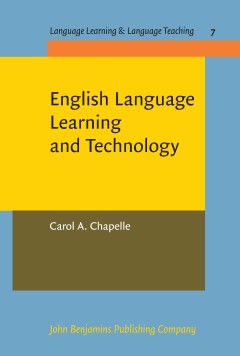
English language learning and technology : lectures on applied linguistics in…
This book explores implications for applied linguistics of recent developments in technologies used in second language teaching and assessment, language analysis, and language use. Focusing primarily on English language learning, the book identifies significant areas of interplay between technology and applied linguistics, and it explores current perspectives on perennial questions such as how …
- Edition
- -
- ISBN/ISSN
- 9789027217042
- Collation
- xvi, 213p. : ill.
- Series Title
- -
- Call Number
- 428.0071 CHA e
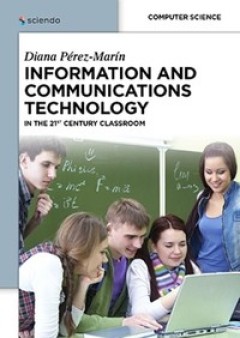
Information and communications technology : in the 21st century classroom
Are you a student who wants to become an effective teacher in the 21st century? Maybe you are a teacher already? Would you like to learn how to take advantage of educational technologies in order to achieve your pedagogic goals? Nowadays, technology is all around us, but how do we, as teachers, make the best use of it?Technology has entered the classroom and most teachers are not trained in usi…
- Edition
- -
- ISBN/ISSN
- 9783110401455
- Collation
- viii, 195p. : ill.
- Series Title
- -
- Call Number
- 371.33 MRE i
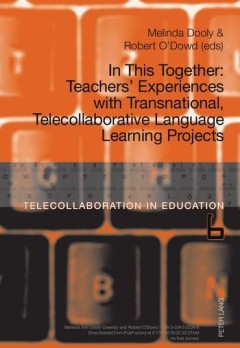
In this together : teachers' experiences with transnational, telecollaborativ…
This book provides a nexus between research and practice through teachers’ narratives of their experiences with telecollaboration. The book begins with a chapter outlining the pedagogical and theoretical underpinnings of telecollaboration (also known as Virtual Exchange), followed by eight chapters that explain telecollaborative project design, materials and activities as well as frank discus…
- Edition
- -
- ISBN/ISSN
- 9783034335010
- Collation
- 230p. : ill.
- Series Title
- -
- Call Number
- 418.00785678 IN i
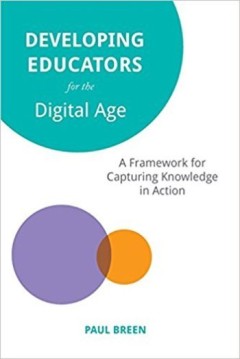
Developing educators for the digital age : a framework for capturing knowledg…
"Evaluating skills and knowledge capture lies at the cutting edge of contemporary higher education where there is a drive towards increasing evaluation of classroom performance and use of digital technologies in pedagogy. Developing Educators for the Digital Age is a book that provides a narrative account of teacher development geared towards the further usage of technologies (including iPads, …
- Edition
- -
- ISBN/ISSN
- 9781911534679
- Collation
- vii, 210p. : ill.
- Series Title
- -
- Call Number
- 371.3344678 BRE d
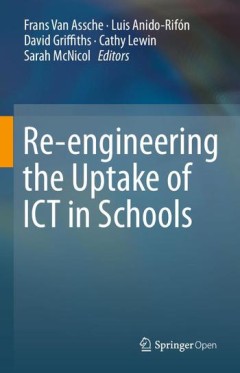
Re-engineering the uptake of ICT in schools
This book reports on a novel and comprehensive approach to the uptake of ICT in Schools. It focuses on key questions, pedagogically sound ways of introducing ICT, new technical artifacts supporting the approach, the evaluation in a large-scale validator, and future work. While many innovations in Technology Enhanced Learning (TEL) have emerged over the last two decades, the uptake of these inno…
- Edition
- -
- ISBN/ISSN
- 9783319193663
- Collation
- xvii, 201p. : ill.
- Series Title
- -
- Call Number
- 371.334 REE r
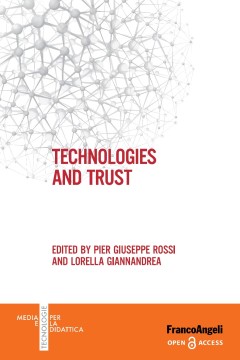
Technologies and trust
What is trust and how new technologies are changing or affecting the concept of trust? This publication offers insights from researchers working in educational technology and distance education, collected in the frame of the European FP-7 Marie-Curie People project “Stimulators and inhibitors of a culture of trust in educational interactions assisted by modern information and communication te…
- Edition
- -
- ISBN/ISSN
- 9788891754554
- Collation
- 98p. : ill.
- Series Title
- -
- Call Number
- 371.33 TEC t
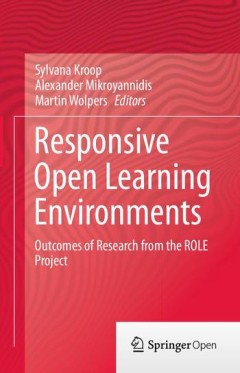
Responsive open learning environments : outcomes of research from the ROLE Pr…
This book presents the outcomes of four years of educational research in the EU-supported project called ROLE (Responsive Online Learning Environments). ROLE technology is centered around the concept of self-regulated learning that creates responsible learners, who are capable of critical thinking and able to plan their own learning processes. ROLE allows learners to independently search for ap…
- Edition
- -
- ISBN/ISSN
- 9783319023991
- Collation
- xxvi, 252p. : ill.
- Series Title
- -
- Call Number
- 371.3943 RES r
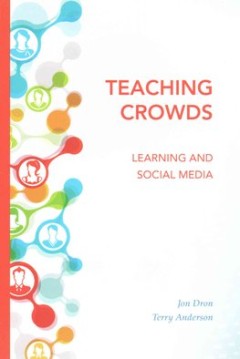
Teaching crowds : learning and social media
Within the rapidly expanding field of educational technology, learners and educators must confront a seemingly overwhelming selection of tools designed to deliver and facilitate both online and blended learning. Many of these tools assume that learning is configured and delivered in closed contexts, through learning management systems (LMS). However, while traditional "classroom" learning is by…
- Edition
- -
- ISBN/ISSN
- 9781771990004
- Collation
- xv, 353p. : ill.
- Series Title
- -
- Call Number
- 371.33 DRO t
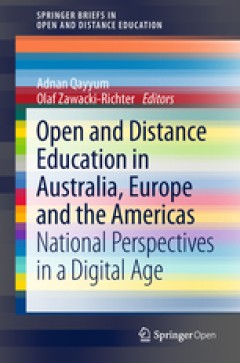
Open and distance education in Australia, Europe and the Americas : national …
This book is open access under a CC BY 4.0 license. This book describes the history, structure and institutions of open and distance education in six countries: Australia, Brazil, Canada, Germany, the UK and the US. It discusses how open and distance education is evolving in a digital age to reflect the needs and circumstances of national higher education systems in these countries, and explore…
- Edition
- -
- ISBN/ISSN
- 9789811302985
- Collation
- vi, 131p.: ill.
- Series Title
- -
- Call Number
- 371.3 OPE o
 Computer Science, Information & General Works
Computer Science, Information & General Works  Philosophy & Psychology
Philosophy & Psychology  Religion
Religion  Social Sciences
Social Sciences  Language
Language  Pure Science
Pure Science  Applied Sciences
Applied Sciences  Art & Recreation
Art & Recreation  Literature
Literature  History & Geography
History & Geography